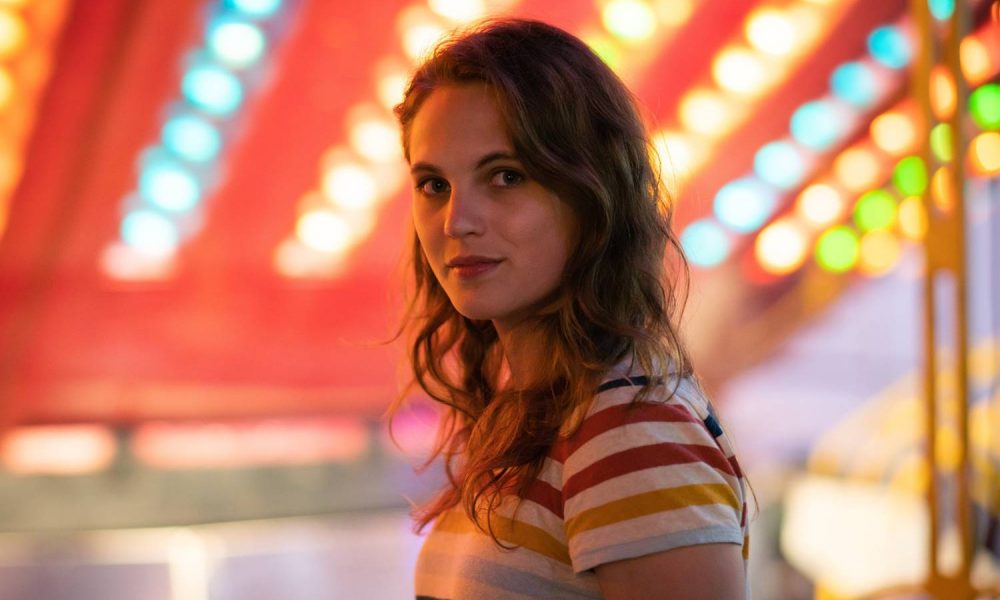

Today we’d like to introduce you to Allie Schultz.
Allie, please kick things off for us by telling us about yourself and your journey so far.
I didn’t come from a creative family. My dad is a full-time engineer and part-time cattle rancher; my mom stayed at home for the first ten years of my life, then worked in business, events, and eventually, politics. I grew up in College Station, Texas, home to Texas A&M University, a far cry from the art school I would eventually attend. I spent my weekends at the family ranch in the tiny town of New Baden. When I was twelve years old and driving my dad’s truck along those red dirt roads, I could picture a future in which I lived out there, on our land, surrounded by trees and creeks and mosquitoes and cows.
I’ve always been creative. I loved drawing, painting, sculpting, sewing; anything I could get my hands on. I went through so many different mediums as a kid, none of them fully satisfying my need to make and to create something fully realized, something that could truly deliver emotion, something that could capture exactly what I felt. That was, at least, until I picked up a camera. But once I did, it was as if I had finally found a way to deliver an illusion of my own, to bring that very magic I felt was missing from my own life, into my work.
Like many who’ve dreamt of being a filmmaker, I spent my childhood making movies with my friends, learning how to creatively photograph the world around me. From an early age, I’ve been fascinated by looking at the world through a lens, discovering how a piece of glass can physically shape and alter one’s perception.
When I learned what it means to be a cinematographer, I knew that was it. That was what I wanted to be. I left Texas for Georgia, where I studied film at the Savannah College of Art and Design. I then went on to study cinematography at the American Film Institute Conservatory here in Los Angeles. I dedicated myself to learning as much as I could as fast as I could and focused on taking every opportunity that put me on set and behind a camera.
I feel lucky that I’m able to do what I love – to create art, to tell stories, to capture emotions – and make it into a career. My life now is so far removed from my upbringing in Texas, but it never felt impossible to get here. I didn’t grow up surrounded by the arts, or even had any idea of what the film industry is actually like. I hadn’t seen a female cinematographer or had anyone guiding me. But it never occurred to me that I couldn’t do it (thanks, mom and dad!). I found something I loved doing and that was it. Sometimes, that’s all it takes.
Can you give our readers some background on your art?
I’m a cinematographer. I tell stories through images and the collaborative process. No one can make a film completely alone – it’s an art form that melds together so many talents and ideas, and that’s what I love about it. Being a cinematographer is a careful balance of being an artist, a technician, a leader, a manager, and ultimately, a team player. It’s also about constantly balancing everyone’s needs and expectations, as well as my own, and always putting the story first.
I shoot mostly narrative films, both shorts, and features. I’m always looking for interesting stories to tell and constantly seeking inspiration in nearly every visual medium. I hope that people take away from my work the idea that it’s all a group effort. I get to create beautiful images that wouldn’t be possible without my crew right there beside me.
What responsibility, if any, do you think artists have to use their art to help alleviate problems faced by others? Has your art been affected by issues you’ve concerned about?
I think the role of artists has changed due to our world being so inundated with images. It’s getting hard to break through the clutter with something meaningful. Yet even though social media is overwhelming us, it’s also connecting us more than ever. It’s definitely a difficult balance.
Particularly in the entertainment industry, our role in creating art has shifted because of the national conversation surrounding the lack of diversity in the stories being told and the people who are telling them. There’s been a push to produce more diverse stories and improve hiring practices to include more women, minorities, and the LGBTQ community.
Personally, I believe art is always affected by the world around it, whether it’s intentional or not. In the past year, I’ve shot projects that tackle issues such as rape culture, toxic masculinity, and domestic violence against women. In light of the current political climate, these stories feel important to tell.
What’s the best way for someone to check out your work and provide support?
Follow me on Instagram @allie.schultz or check out my work at www.allieschultz.com!
Contact Info:
- Website: https://www.allieschultz.com
- Email: [email protected]
- Instagram: @allie.schultz







 Image Credit:
Image Credit:
Allie Schultz
Getting in touch: VoyageLA is built on recommendations from the community; it’s how we uncover hidden gems, so if you know someone who deserves recognition please let us know here.



















